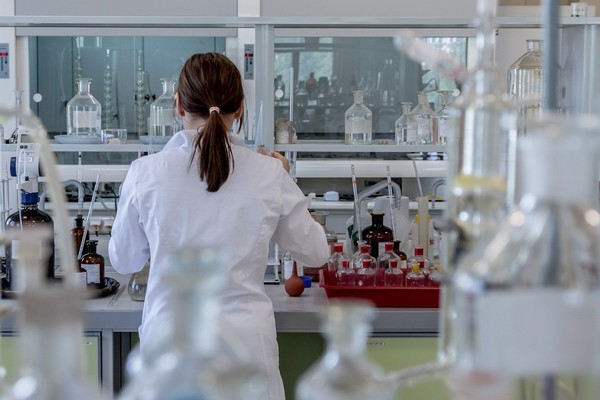President-elect Yoon Suk-yeol vowed to give full support to the bio-health industry to make it “a second semiconductor,” a major driver of the Korean economy.
The new government will establish a Pharmaceutical and Biopharmaceutical Innovation Committee, bring up physician-scientists, operate a regulatory sandbox for bio-health innovators, and build bio big data of 1 million people, he said.

Yoon’s transition team said he visited the headquarters of SK Bioscience in Seongnam, south of Seoul, on Monday.
His visit aimed to encourage the company’s Covid-19 vaccine development efforts and express his commitment to supporting the bio-health industry aggressively.
“This research lab of vaccines and treatments will determine our enormous national potential, the economy, health, and security,” Yoon said. “When I take office, the government will not spare any effort to support vaccine and treatment developers that respond to the pandemic.”
During Yoon’s visit to SK Bioscience, the transition committee also disclosed the government’s national tasks to bring about “an era of Korean wave in bio-health.”
The first task will be forming a global megafund to help Korean bio-health companies develop innovative drugs in the global market.
The transition team said that by setting up a new pharmaceutical and biopharmaceutical innovation committee, the government would encourage basic researchers, hospitals, and companies to collaborate and strengthen bio-health governance.
The new government will also actively nurture physician-scientists and AI experts in the bio-health sector and run a regulatory sandbox to ease regulations in the sector.
As the WHO designated Korea as a global biomanufacturing training hub, the government will push to build a global bio campus and seek various international cooperation efforts to raise the status of “K-bio,” the transition team also said.
The transition team emphasized the will to support the “digital healthcare industry” among bio-health areas.
Specifically, the government will build bio big data from 1 million population and open it to the private sector. Support hospitals’ clinical networks to develop state-of-the-art medical technologies, the transition team went on to say.
The new government will look into significant areas for extensive R&D, including digital pills, digital therapeutic devices, and AI-backed diagnostic assistance tools.
Yoon will also push to establish a platform for “My Data in Medicine” (My Healthway) to collect health information scattered to medical institutions, the National Health Insurance Service, and insurers into one and help individuals access their health information easily anywhere.
The transition team also plans to build a new system to support sectors directly affecting national health security, such as infectious diseases and rare/intractable diseases that require sustainable support.
“After Covid-19, a new infectious disease can emerge any time,” Yoon’s transition team said. “We need a system that innovatively supports those areas.”
Bio-health is a crucial sector that is not only promising for the Korean economy but crucial to improving people’s health and quality of life, the transition team said.
Industries, science and technology, and medicine will be integrated into one, centered on people, and the bio-health industry will become “a second semiconductor” and lead to economic growth and job creation.

